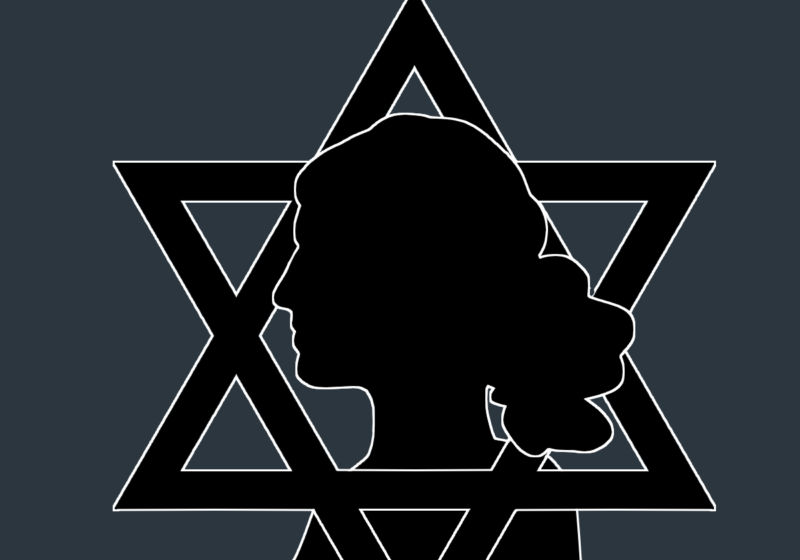For a year of my life, I thought I was a mixed-race woman. It’s tempting to excuse this as a result of my then-untreated PTSD and chronic insomnia. It‘s tempting to tell myself that this is my parents’ fault— which it both is and isn’t. It’s tempting to let myself off the hook.
I’m an Ethnic Studies scholar, and a budding Cultural Studies scholar. Do not let me off the hook.
Here are the facts: In 2015, as a junior transfer at Willamette University, I lied. Or, I told the truth as I understood it then in my fevered brain, away from my not-always-fantastic parents for the first time, searching for answers in the hopes of healing, but simultaneously hesitant to dive into the silenced historical traumas of my Jewish past. I responded to the unavoidable fact of my mother’s dark complexion, her lack of physical resemblance to either of her parents, and the shadows her obvious lies about her relatives and childhood cast over my life. I made up a story to suit the silences of the family I was born into, and the non-truth I made up slid perfectly over the gaps in my own story of self.
I might have continued investing in this lie for the rest of my life. Except Rachel Dolezal was in the news that year. Except I was taking Ethnic Studies courses. Except, in spite of everything it’s taken from me, I love being Jewish.
So I took a 23andMe test, and there it was in black and white; I was indeed Jewish. Jewish on both sides of the family. Jewish as far back as blood goes.
Ashkenazi Jews are considered “white Jews,” both by themselves and others, even though many, like my mother, have darker complexions than what is typically perceived as white. Regardless of how deeply my mother wants to identify with whiteness, she will repeatedly fail to access that white privilege as long as her white neighbors racialize her as “other.”
This left me with so many questions. Why does my mother invest so deeply in the illusion that her visible otherness is in fact invisible? Why does she hide that the way the other, whiter women in her glitzy suburban neighborhood treat her is racialized? What happened to the friends of color I had as a child, the friends my mother casually erased from my life as soon as she met them? Why are there so many lies in my family?
The truth is this: My mother’s mother’s mother came to this country with her sister in the 1930s. The rest of their family was left behind in Germany or Poland or Austria, depending on which day my mother tells this story. They all died in the Holocaust. All of them.
My mother’s mother’s mother went crazy when she was middle aged, after bearing and raising three children on her own. They threw her in a mental asylum. To “cure” her, they pulled all her teeth.
My mother’s mother was robbed of her thyroid gland because the doctors believed removing a vital organ would make her less depressed.
And my mother? My mother married my father. She tells no one the story of her mothers.
I was born into a family that lies about the most important things. I was born into a history of such pain that there’s no way to speak about it, except not to. We hide our cultural and historical identity behind the veil of whiteness. Whiteness makes a person crazy, then legitimizes that craziness. My mother did it. I did it, in a different way. I went a little crazy, and, storyteller that I am, I made up a story.
This isn’t meant to be an excuse. This is a recitation of the facts. Perhaps you’ll find them useful, and find in them the meaning that I can’t yet find myself.
I will say this, however; I’m a working-class, Jewish, disabled academic. Compared to a woman in Jessica Krug’s standing, I have no power. But I told the truth to all those close to me, even when it hurt, even when it severed relationships, even when it confronted me with shame the likes of which I’ve never known. I have a mental health diagnosis, the result of years of substantiated physical trauma, homelessness, and gender violence, and you know what? I don’t blame my actions on any of that, because I’m an adult. I take responsibility for my life, and for myself, even the parts that are monstrous or shaped by privilege.
And yes. I do believe this is a Jewish thing. I do believe this kind of culture confusion is caused by assimilation and the insanity created by the double consciousness of living surrounded by antisemitism, while being coerced into assimilation even by members of our own community. So yes, I believe this is a Jewish thing, but I do not believe this is only a Jewish thing. I believe this is a white thing.
So let’s not act like “why they do it” is some kind of mystery. People like Krug do it because of whiteness. They do it because they can. They do it because internalized white supremacy says why not pretend to be something you’re not, if it will get you where you want to go?
Instead, I’d like to focus on white people who care, fellow white people who struggle to know what to do. The question isn’t “Why does this happen?” but “What are we going to do about it?”

